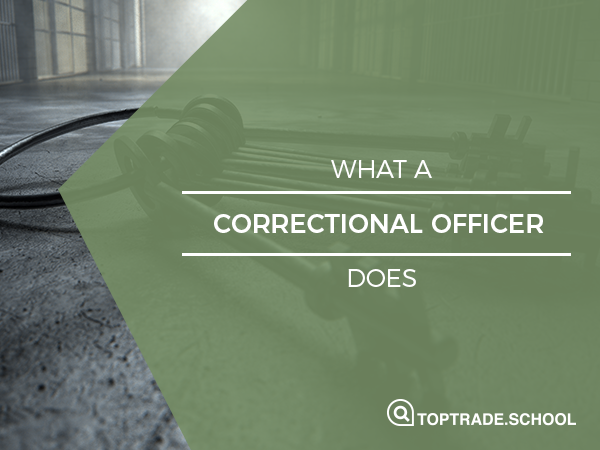What does a correctional officer do? Correctional officers work in jails and various other types of correctional facilities on a federal, state, or local government level. As part of the law enforcement community, you need to be highly trained due to the stress and danger that accompanies the position. Here’s a look at what your job duties will include. Keep in mind your actual tasks will be more dependent on what type of facility you’re employed at.
- Enforce the facility’s rules to keep order.
- Keep a watchful eye on what the inmates are doing.
- Make sure safety standards are being adhered to.
- Perform an occasional and unannounced search of the inmates and their cells to check for contraband.
- Complete reports on inmates and their behavior.
- Escort the inmates to and from the facility, and well as throughout.
- If you’re working at a high-security prison, then you may occasionally need to storm cells due to violent inmate behavior.
How can I become a correctional officer?
To become a correctional officer you’re going to need to have some serious training and educating prior to entering a correctional officer career. For starters:
- Be between 18-21 years of age to start
- Attend a training academy, check with your state to find out where they are
- Have a high school diploma or GED
- Some academies will require you to have had a bit of college
- If you want to work at the federal level, you’ll need a bachelor’s degree or three years of related experience including having provided counseling, assistance, or supervision to adults
- Depending on your state, your training could last a few months to a couple years
- There will be an entrance exam that you’ll need to pass in order to get into the academy, regardless if you go to college or go straight into the field
- Gain on-the-job experience
- Look for advancement opportunities
What kind of salary will I earn?
To be a successful correctional officer, you need to have split second decision making skills, and serious negotiating skills, both will come in handy in this field. You also need to be strong, both physically and with your interpersonal skills. The median annual salary, which means half of those in the field make more while half make less, is over $42K. The top 10 percent earn over $74K annually. The federal government generally pays top dollar, averaging over $54K. You’ll be working full time, and on a rotating shift because jails and prisons need to be guarded around the clock. Weekends and holidays will have to be worked, as well.
What’s the job market like for correctional officers?
There is going to be a decline in the employment outlook for correctional officers through 2026. Between budget cuts and and the levels of the prison population, jobs are going to be based on demand and will vary throughout the prison system. However, there will still be jobs available due to retirements and people moving on from the career.
References:
